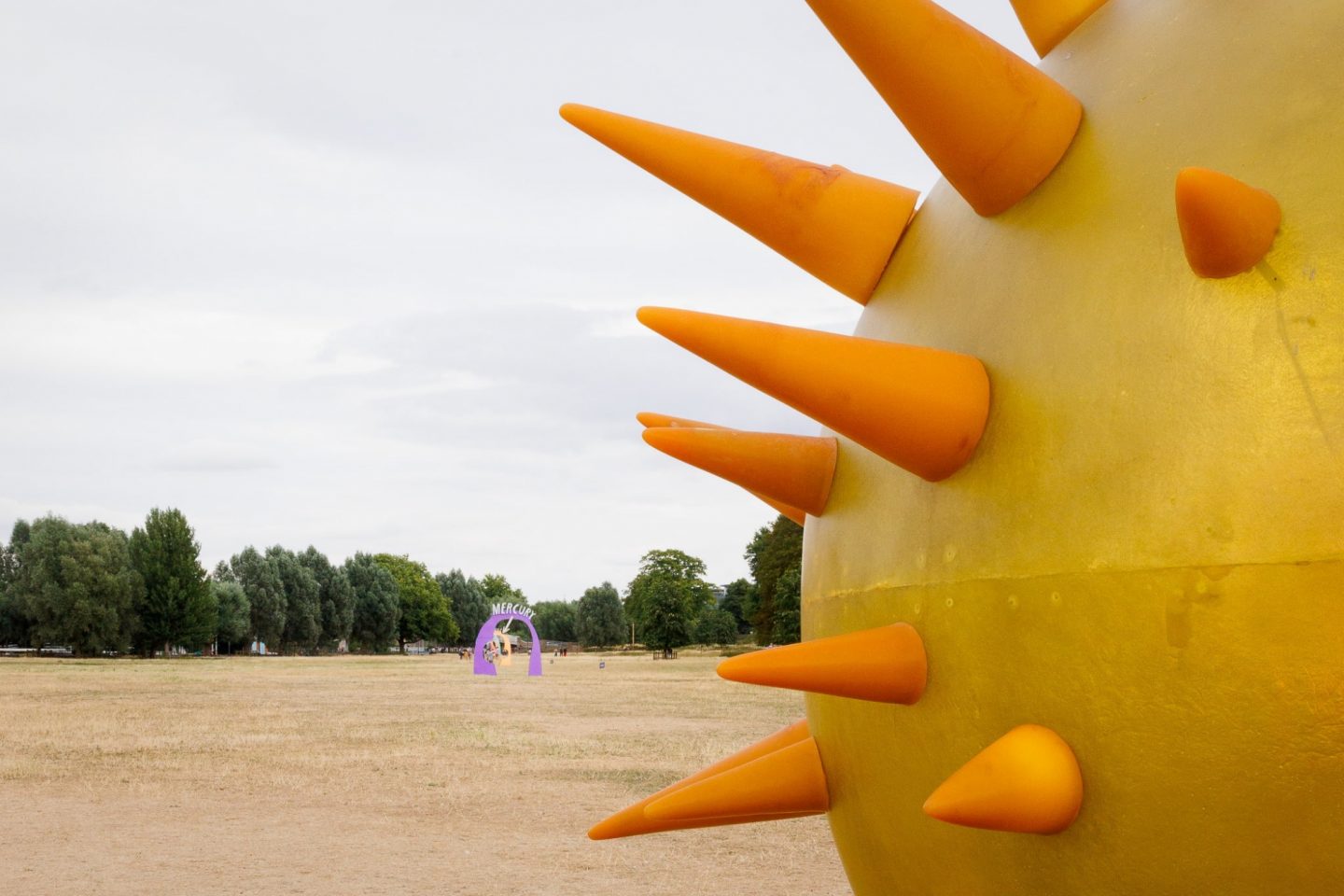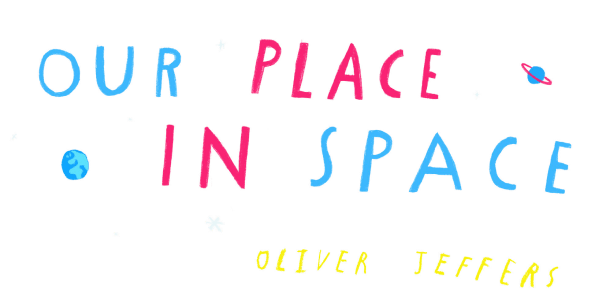Solar System lands in Cambridge
Our Place in Space, the recreation of our solar system as an 8.5 km sculpture trail designed by artist Oliver Jeffers with astrophysicist Professor Stephen Smartt and a creative team led by the Nerve Centre, launches in Cambridge on 30 July with a weekend of free, family events.

Stretching from Midsummer Common in the heart of Cambridge along the River Cam to Cow Hollow Wood in nearby Waterbeach, the trail features scale models of our solar system's planets and the Sun, recreated as contemporary art sculptures – an arch houses each planet with an arrow and its name as a giant illuminated sign above it.
The trail’s scale of 591 million to one makes the Sun 2.35 metres across, Earth 2.2 centimetres, and Pluto just 4 millimetres.
Our Place in Space, part of UNBOXED: Creativity in the UK, invites participants to consider how we might better share and protect our planet in future and what is the difference between ‘us’ and ‘them’? The project aims to bring our solar system down to Earth and send us soaring into the stars to find new perspectives and reconsider what it means to live life on our planet.
The trail is accompanied by the Our Place in Space augmented reality app, available on Apple and Android, which allows users across the world to take a walk through the solar system, experiencing the planets in augmented reality and considering 10,000 years of human history on Earth. Users are invited to collect space souvenirs, including characters from the world of Oliver Jeffers, as well as launching a personalised star into space.

Our Place in Space runs until 29 August with events running from the opening weekend on 30 and 31 July and throughout the summer, with interstellar tours, silent disco stargazing, live music, film screenings, yoga, and building a Minecraft planet.
Oliver Jeffers, internationally renowned artist and author said: “For centuries, we’ve defined ourselves by who we are and who we’re not. Which side we choose, on what ground we stand, who and what we fight for. A human story, that lives merely in human minds. But with distance comes perspective – and what happens to our perspective on everything when we look back at Earth from space? Our Place in Space is a playful experiment that asks: What is the difference between ‘us’ and ‘them’? Which side are we on, and if we look back at ourselves from vastness of outer space – alone on our tiny planet, the only one that can harbour life – should there be any ‘sides’ at all?”
Our Place in Space has been designed by Oliver Jeffers with leading astrophysicist Professor Stephen Smartt and a creative team led by the Nerve Centre, Northern Ireland’s leading creative media arts centre. Local partners helping to bring Our Place in Space to Cambridge include Cambridge University, Cambridge City Council, Cam Conservators and the Woodland Trust.

David Lewis, Executive Producer at the Nerve Centre, said: “Our Place in Space is a remarkable installation that combines science and art and has been thrilling children and adults alike in Northern Ireland since its launch in April this year. We are delighted to be able to bring the sculpture trail to Cambridge to the spectacular setting of Midsummer Common and the River Cam. We would encourage residents and visitors to come and experience the world of Oliver Jeffers and a creative collaboration involving some of Northern Ireland’s finest talent.”
Our Place in Space is one of 10 major creative projects commissioned as part of UNBOXED: Creativity in the UK, a celebration of creativity taking place across the UK this year. UNBOXED features free large-scale events, installations and globally accessible digital experiences in the UK’s most ambitious showcase of creative collaboration.
Martin Green CBE, Chief Creative Officer of UNBOXED: Creativity in the UK, said: “Our Place inSpace embodies UNBOXED’s aims to bring people together and celebrate creativity through a project that is both fun and incredibly important in its aim for everyone to reflect on life on earth and their relationships with those whose beliefs may be different from their own. It opens our eyes to a better future of understanding and collaboration.”
